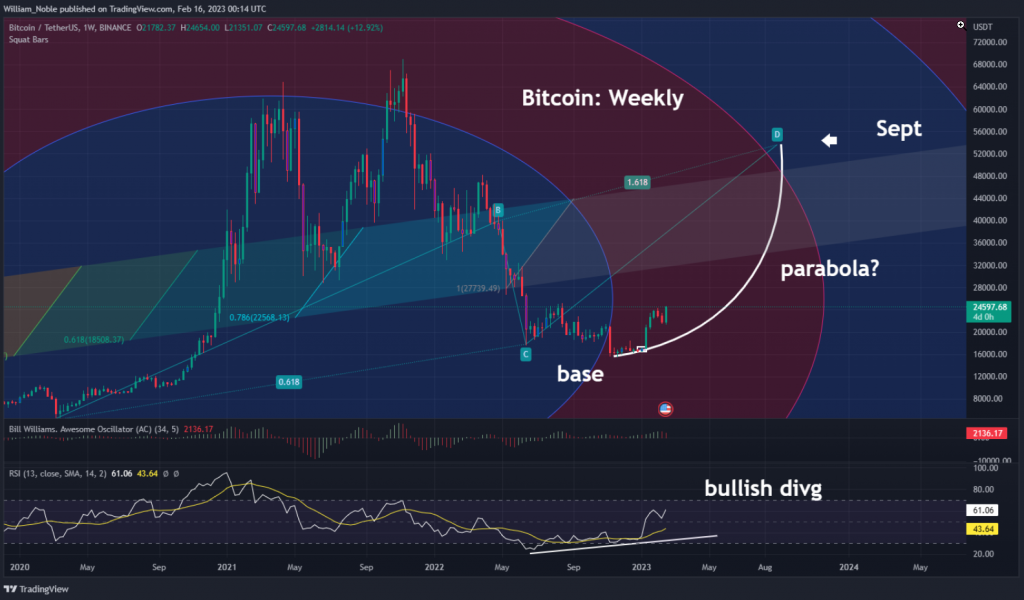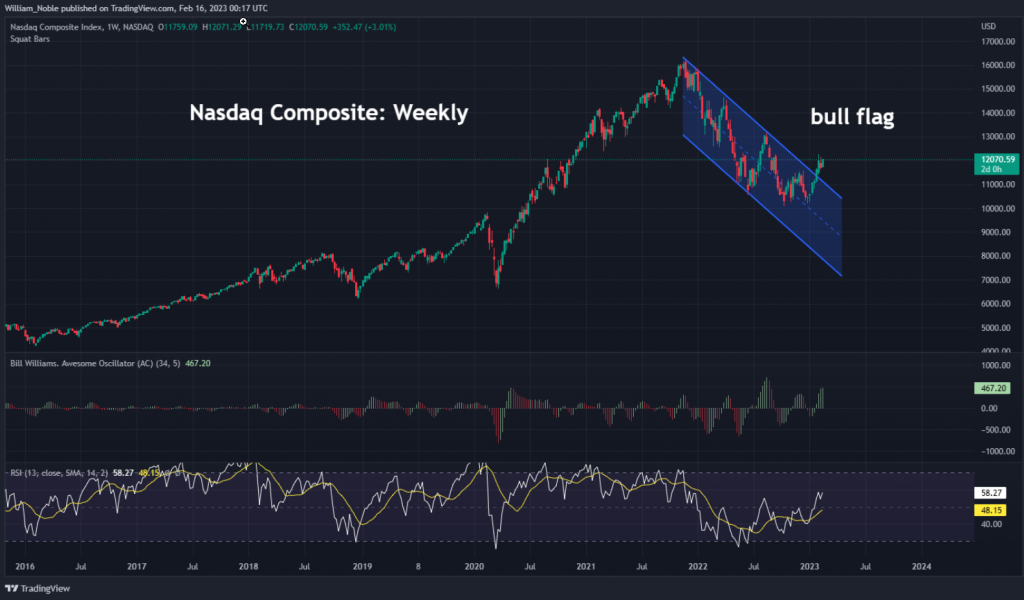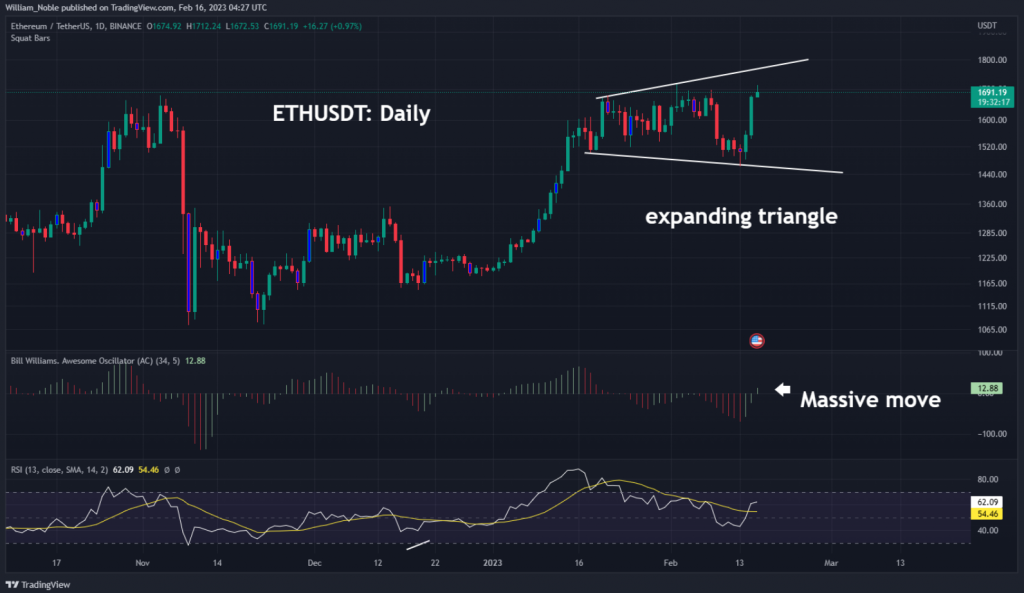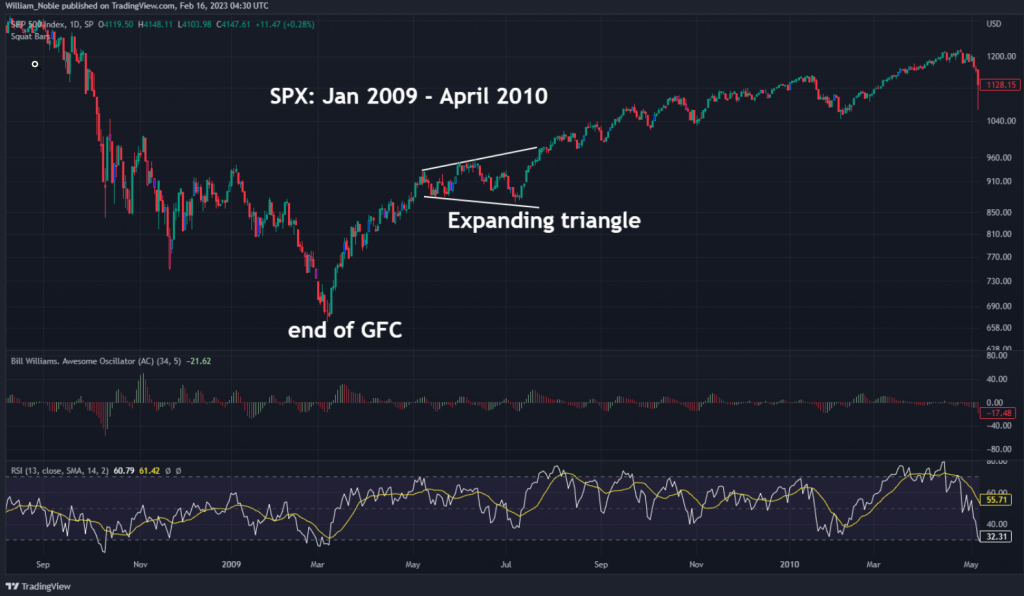“Based on the first law of physics, an object in motion will continue in motion until an outside force affects it,” Wall Street’s champion trader Martin S. (Buzzy) Schwartz wrote in his book “Pit Bull.”
Bitcoin (BTC) has rallied nearly 50% in the first seven weeks of the year, reaching a six-month high of $24,900, with outside forces like the sentiment in traditional markets largely supportive. Recently, the crypto market and Wall.
So one chart analyst expects a continued move higher that could see bitcoin more than double in value in the coming months.
“Bitcoin is breaking out from a long basing formation. There is a saying, the bigger the base, the higher into space,” William Noble, director of research at Emerging Assets Group and former analyst at Goldman Sachs and Morgan Stanley, told CoinDesk.
“Bitcoin may move from consolidation to another parabolic move back to $56,000,” Noble said, having correctly predicted the cryptocurrency’s late 2020 surge from $20,000 to $40,000.
“Going parabolic” is an expression often used in the crypto market to describe an expected impulsive move higher with limited downticks.

Bitcoin’s recent bull move that follows a prolonged consolidation at the bear market depths has legs, according to Emerging Assets Group’s William Noble. (William Noble/TradingView) (William Noble/TradingView)
Bitcoin’s recent bull revival follows a prolonged period of sideways trading at the depths of the bear market around $18,000, or the basing pattern, as Noble said.
The widely tracked momentum indicator relative strength index (RSI) has diverged bullishly on the weekly chart, confirming an end of the downtrend.
A bullish divergence of RSI occurs when the indicator does not reciprocate the new low on price, as observed in November 2022. That’s a sign of bears losing power and bulls gaining strength.
Nasdaq’s bull flag
Another good news for crypto bulls is that Nasdaq has broken out of a bull flag, a technical pattern known to accelerate an uptrend. Bitcoin’s 90-day correlation coefficient with Nasdaq has increased to 0.75, indicating the two assets are moving in tandem.
“In Nasdaq, there is a bull flag. There is a saying, ‘flags fly at half-mast,’ meaning there could be another major run higher in equities to a new all-time high,” Noble said.

Nasdaq’s breakout suggests the path of least resistance for tech stocks and crypto is on the higher side, per Noble. (William Noble/TradingView) (William Noble/TradingView)
A bull flag forms when a correction follows an initial steep rise. An eventual breakout from the flag is said to confirm a resumption of the broader uptrend.
Nasdaq fell by 37% in 11 months to October 2022. The decline, though severe, looked like a correction in the broader rally from March 2020 lows and represented a flag pattern on the weekly chart that recently ended with a bullish breakout.
“Said differently, there could be a new bull market in stocks that looks like the last bull market; 2023 could be a surprisingly good year for both crypto and equities,” Noble noted.
Interestingly, Nasdaq’s daily chart also shows a bull flag breakout, as popular analyst Declan Fallon noted.
A bull flag forms when a correction follows an initial steep rise. An eventual breakout from the flag is said to confirm a resumption of the broader uptrend.
Nasdaq fell by 37% in 11 months to October 2022. The decline, though severe, looked like a correction in the broader rally from March 2020 lows and represented a flag pattern on the weekly chart that recently ended with a bullish breakout.
“Said differently, there could be a new bull market in stocks that looks like the last bull market; 2023 could be a surprisingly good year for both crypto and equities,” Noble noted.
Interestingly, Nasdaq’s daily chart also shows a bull flag breakout, as popular analyst Declan Fallon noted.
Potential breakout in ether

Ether is trapped in a sideways expanding channel. The MACD histogram, an indicator used to gauge trend strength and changes, has crossed bullishly above zero. (William Noble/TradingView) (William Noble/TradingView)
Ether (ETH), the second-largest cryptocurrency by market value, is yet to break out of an expanding triangle, identified by trendlines connecting Jan. 21 and Feb. 2 highs and lows registered on Jan. 25 and Feb. 13.
Per Noble, a potential breakout might bring outsized gains in Ethereum’s native token.
“The expanding triangle in ETH is potentially very bullish. I saw formations like this in 2009 and 2010 when stocks rallied post-global financial crisis,” Noble said, pointing to the S&P 500’s expanding triangle breakout of 2009.

The blue chip index rallied sharply after breaking out of an expanding triangle in April 2010. (William Noble/TradingView) (William Noble/TradingView)
Source: CoinDesk





